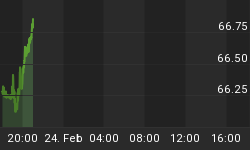An article today reports on an apparent disagreement that arose last night between Jean-Claude Juncker, President of the Eurogroup of Finance Ministers, and Christine Lagarde, Managing Director of the International Monetary Fund. Mr. Juncker is reported as having said that Greece will be given two additional years - to 2022 from 2020 - to meet its debt reduction target of 120% of GDP. Ms. Lagarde is reported as having taken exception to this saying she and Mr. Juncker "clearly have different views" on Greek debt.
Consider from 10,000 feet what is being said here:
-
first, 2020 is eight years from now;
-
second, eight years ago in 2004, American banks were well into the process of indiscriminant lending and packaging 'residential loan packages' that three years later led to the U.S. sub-prime crisis that contributed hugely to current U.S. fiscal cliff and debt ceiling issues;
-
third, given the current economic circumstances of several European Union/Eurozone countries, the United States, and perhaps now Japan, who is able to predict what world economic circumstances will be one year from now, let alone what they will be in eight years time;
-
fourth, Greece is not isolated, and is not an isolated economic problem in an inter-dependent globalized world that seemingly has come to emphasize short-term 'trading' and not long-term 'investing' world. Even if Greece wanted to 'control its own economic destiny', it can't do that; and,
-
fifth, most of the debate by politicians, the IMF, and the like seems to be among 'hopeful' world leaders who seem either not to be prepared to make the hard decisions that might 'reset the economic game' in the developed countries, or world leaders that have concluded they can't do that for fear of the consequences - hence they adopt a continuous postponement strategy which, without sustained real GDP growth, at some point presumably will have to come crashing down around them and all of us.
So, does it really matter in November, 2012 whether Greece is given to 2022 or 2020 to meet a sovereign debt:GDP ratio that I think it is unlikely to achieve in the end in any event?
A second unrelated article yesterday reported that since the beginning of its financial crisis (or more likely recognition of its financial crisis):
-
Greece has "cut $80 billion in spending and its economy has shrunk by 18%"; and,
-
Greece's small and medium sized businesses account for 90% of all jobs, and currently are struggling to survive austerity measures and a sharp decrease in consumer demand.
As I see things, austerity programs and real GDP growth are not bedfellows. Accordingly, I suggest you watch Greece going forward as a litmus test as to what may happen to economic 'growth' in other countries that face similar austerity pressures.
The important question is: Are we watching an unraveling of developed country economies and standards of living that, much like a landslide starts slowly, become unstoppable as it gains momentum?
I sincerely hope the answer to that question is 'no'. However, I do believe that the question is one traders, investors, and every other thinking person ought to focus on, monitor, and continuously consider as they each go about their day/day activities.
Topical References: IMF chief and EU clash over Greek debt, from The Telegraph, Bruno Waterfield and Louise Armitstead, November 13, 2012 - reading time 3 minutes. Also read Greek austerity: A light around the bend?, from Marketplace, John Psaropolous, November 12, 2012 - reading time 1 minute.
















